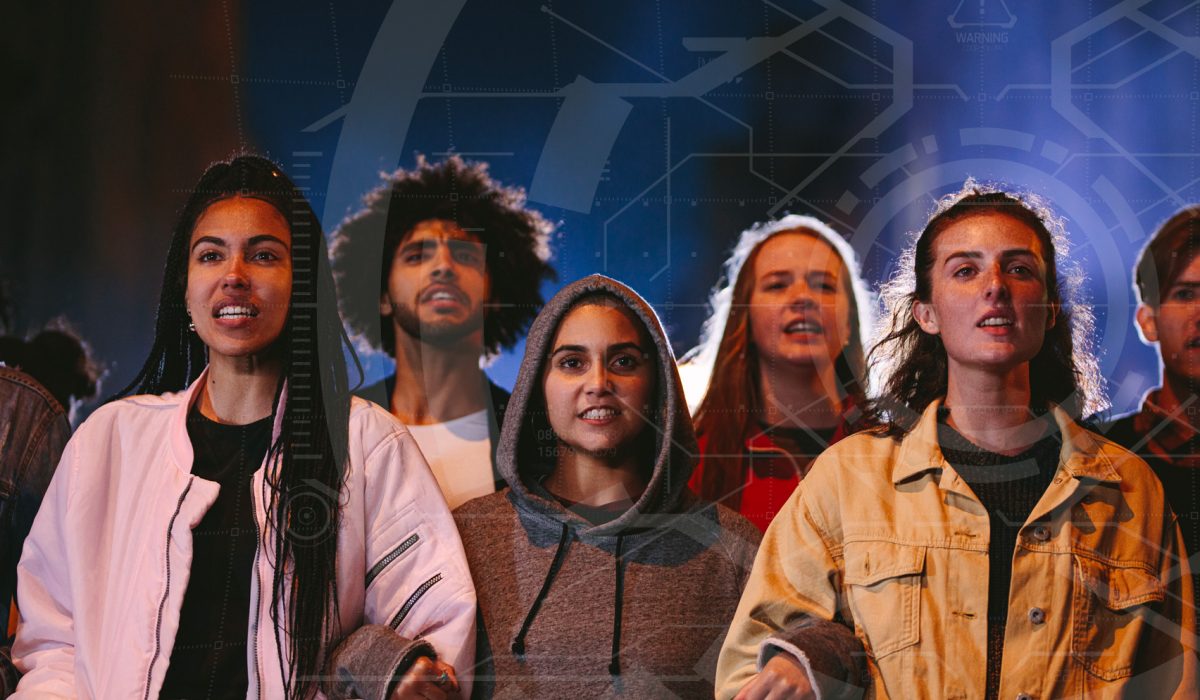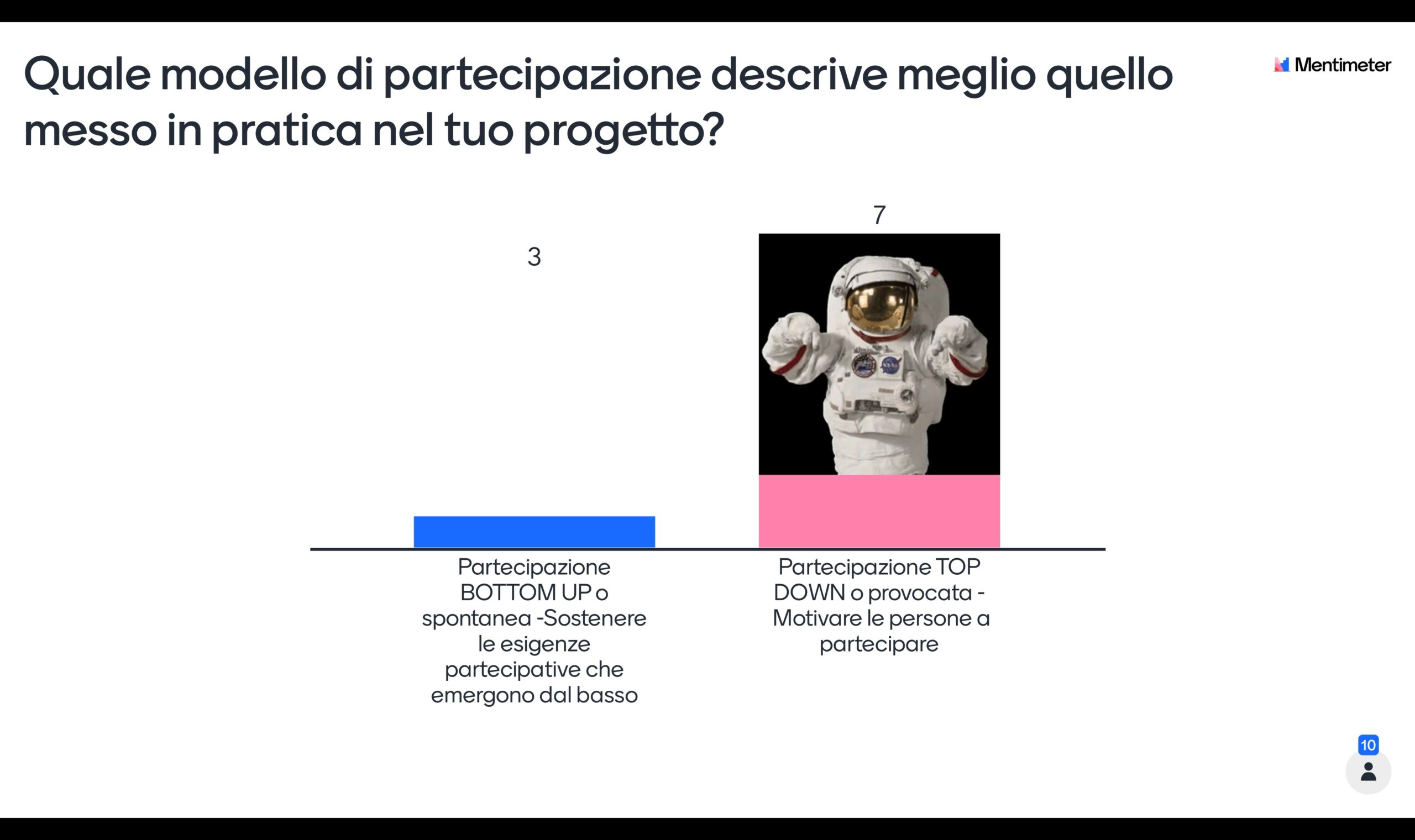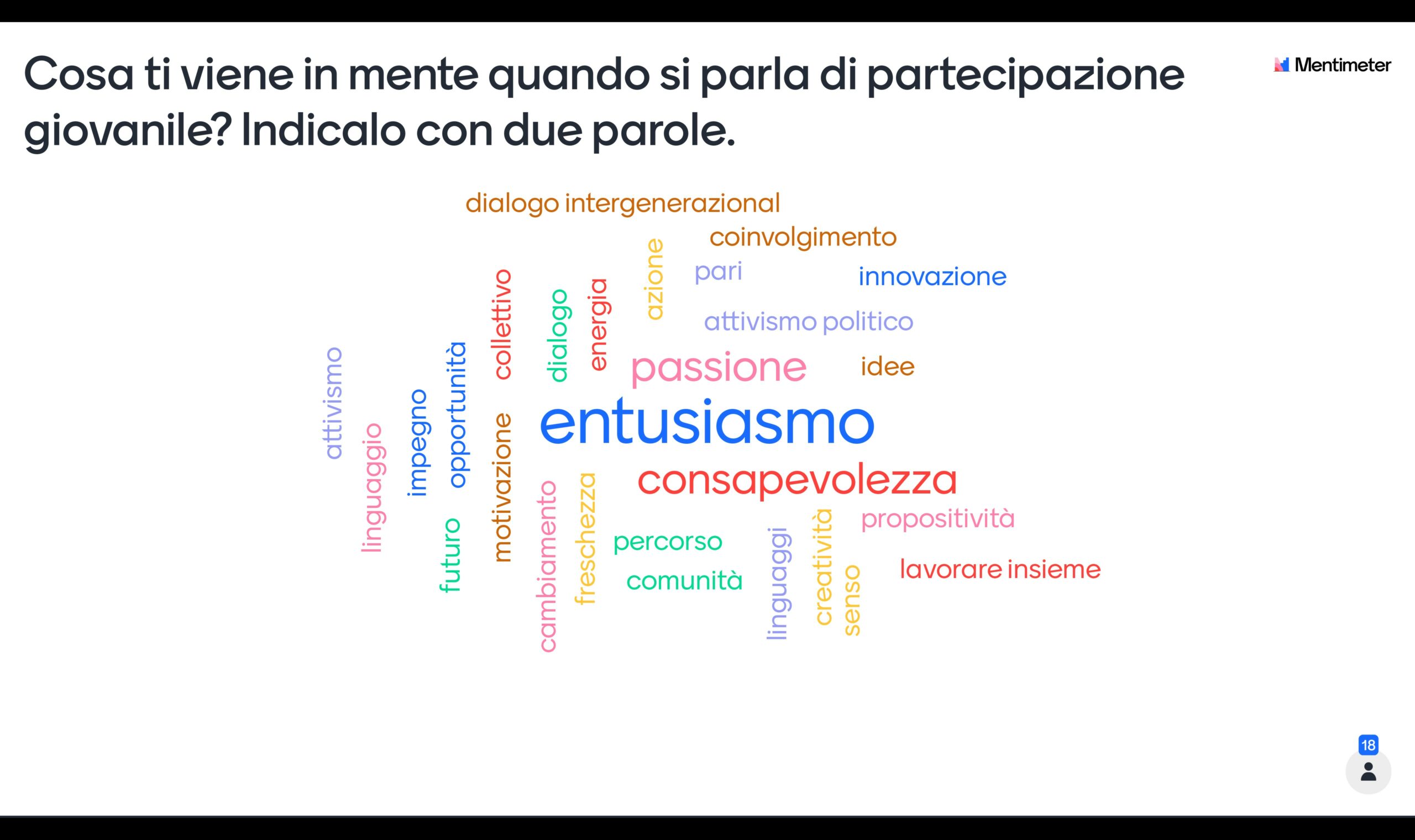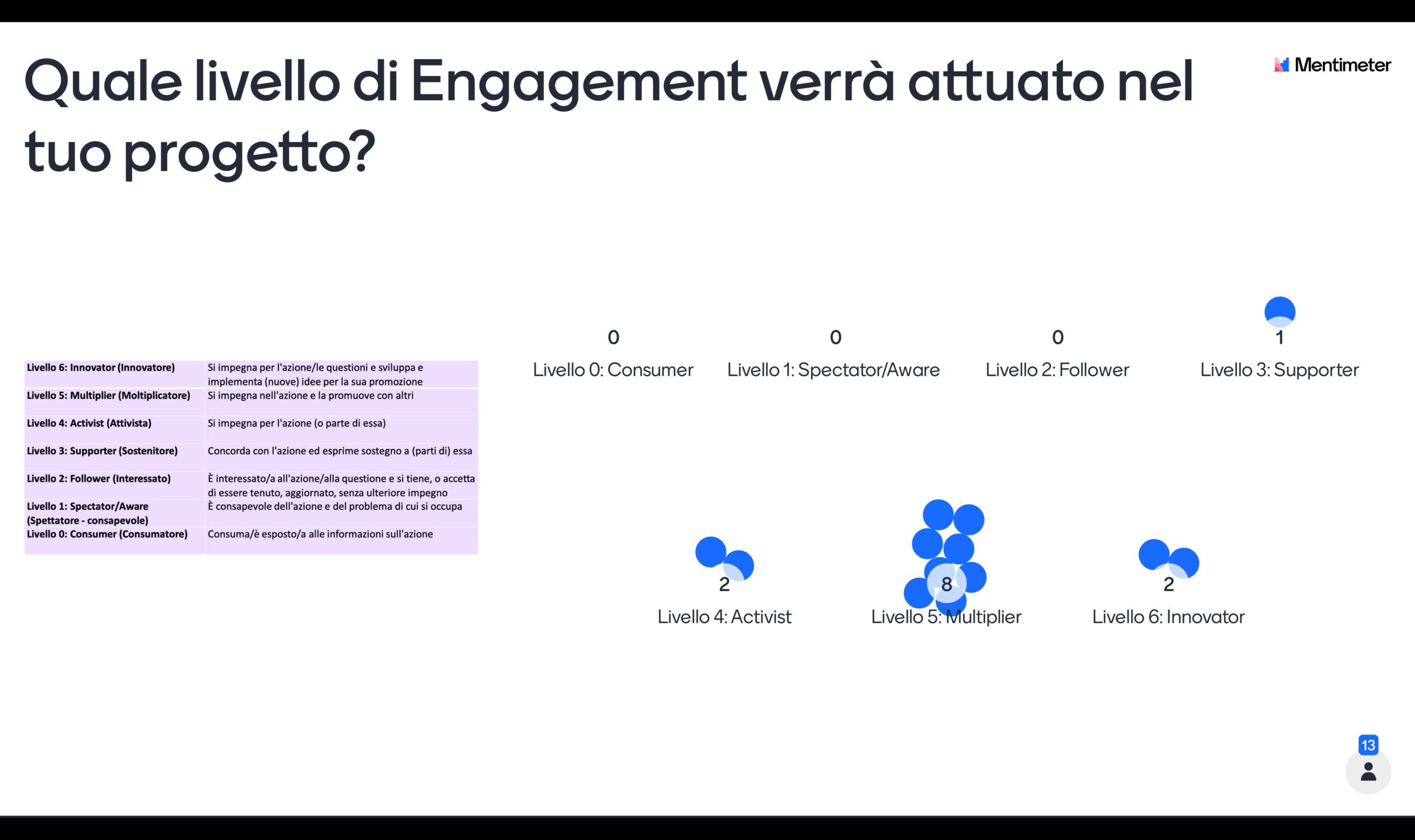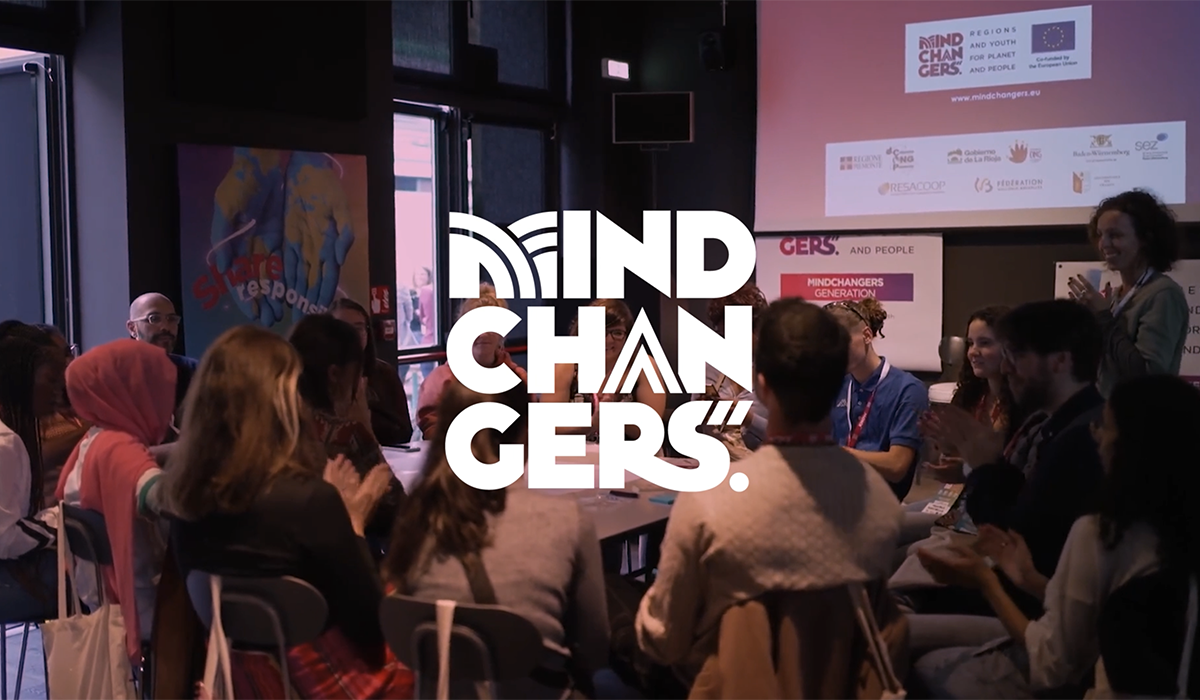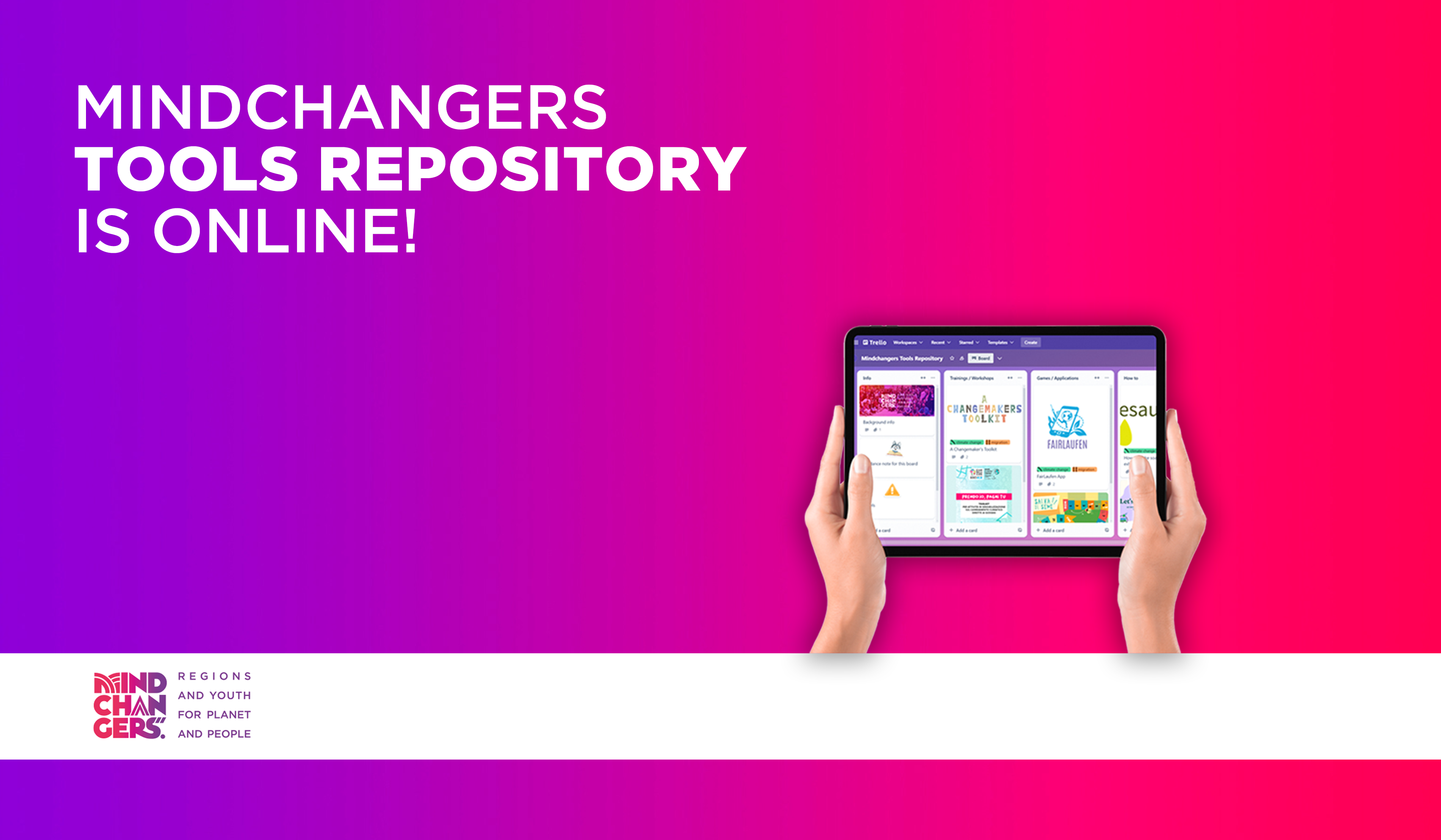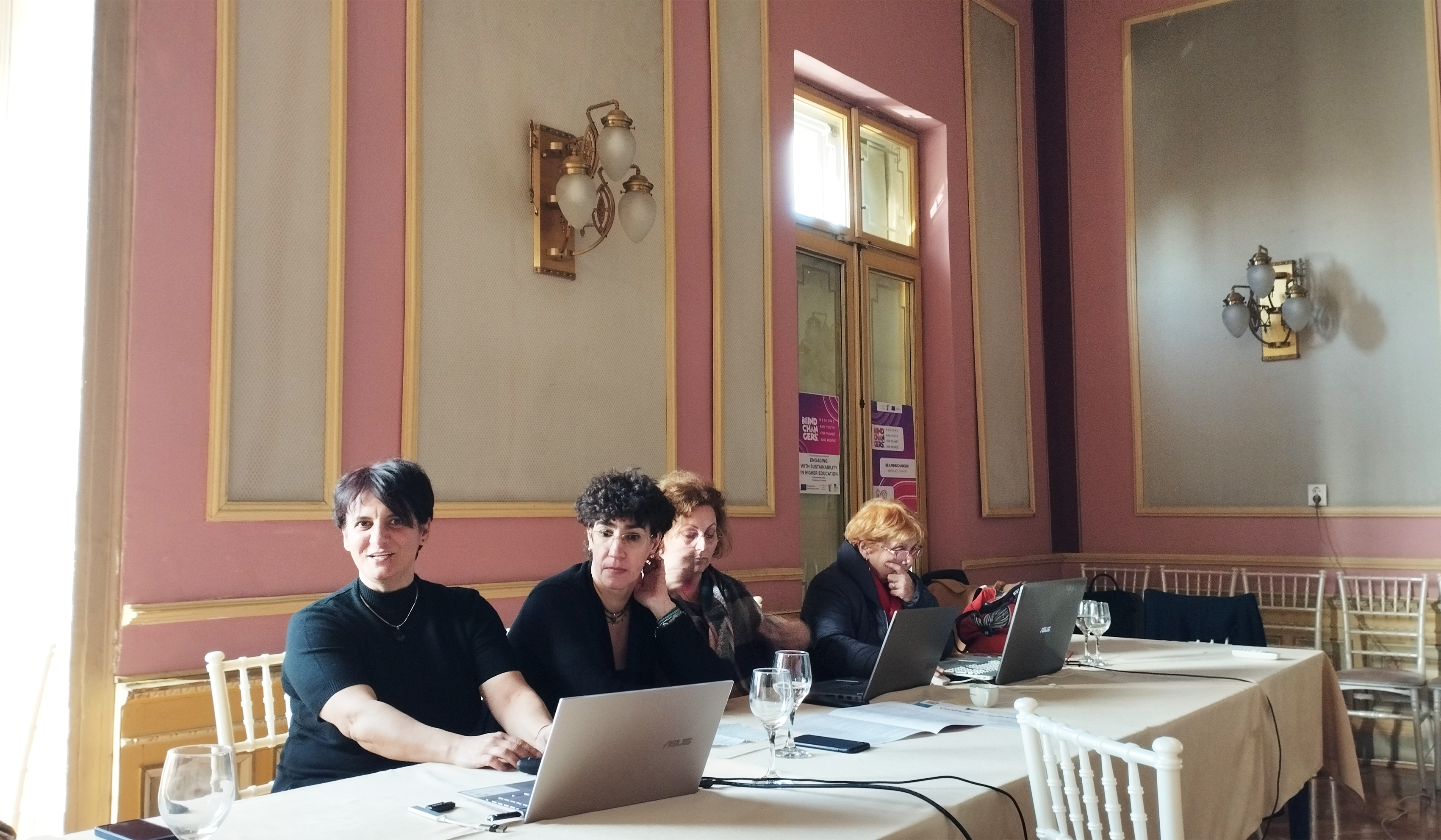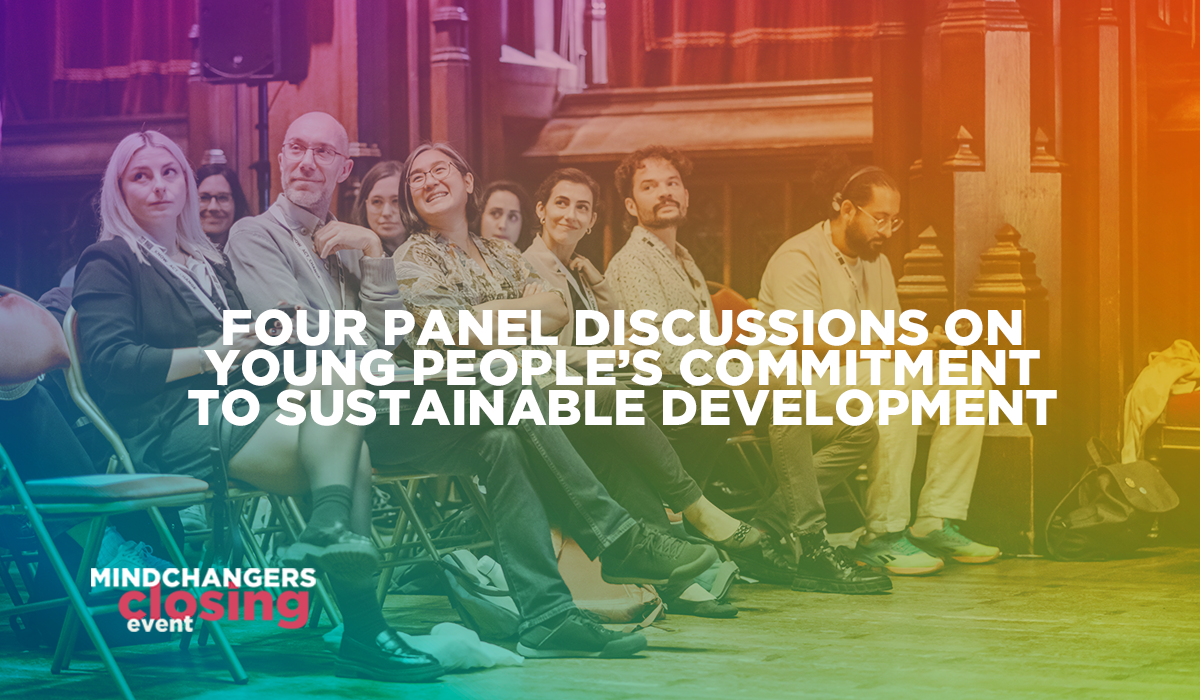If you search for “youth participation” on Google Trends, the google-owned-platform gives you back the most used terms related to it.
By looking closer to the top five youth participation-related terms, it comes down the following ranking:
- Youthfulness
- Volunteering
- Moral value
- Community
- Organization
Three-out of five of these words are linked to action (volunteering) and belonging (community and organization).
This simple search confirmed the main output of the research “How to shift from awareness to active engagement” presented by Mara Martini PhD, a team member of the Psychology department of the University of Turin.
The research was presented in occasion of the Mindchangers start-up seminar, which took place the 14th of December in Turin. The event gathered the representatives of the Local Authorities and Civil Society Organizations participating to the 11 projects that have been financed in the first round of sub-granting of the call “Youth and 2030 Agenda”.
Thus, between “belonging” and “being active” is what the researcher conveyed to the CSOs and Local Authorities as the fundamental takeaway.
In the year to come the 11 granted projects, involving a total of 22 Local Authorities, 46 CSOs, 8 local media and 2 Universities, will face the challenging task to shift from awareness-raising to active engagement of youth on two of the most mind-blowing issues of our time: migration and climate change.
Such a challenge is directly borne by the 17th SDG whose aim is to “Strengthen the means of implementation and revitalize the global partnership for sustainable development”.
The start-up seminar agenda
After an introduction of COP’s Director Andrea Micconi and Piedmont’s civil servant Giorgio Garelli on the main goals of Mindchangers, Emanuela Meduri, COP’s internal staffer in charge of the administrative and the accounting task, made it clear to the audience the administrative duties every grantee should stick to in order to pass the final audit that will be done at the end of every project.
Then was the time for the grantees to listen Giulia Randazzo, Technical Coordinator of the Mindchangers project. Her intervention focused on the general framework of the partnership and the existing working groups, in particular the one on communication and monitoring system.
If you’re guessing to what extent these two groups are pivotal to the success of the project, it’s worth mentioning few numbers that will help you keep up with the Mindchangers’ ambitious goal.
“Strengthening the engagement of EU young citizens and the awareness of general public towards 2030 Agenda through communication actions and capacity building of Las and small and medium CSOs.”
Mindchangers will develop a pan-European communication campaign that aims to reach 3 million European citizens. This goal will be pursued with the joint coordination of 6 regional partners who will grant between 100 and 150 projects led by CSOs and Local Authorities.
Thus, it is evident how the coordination of the two-working group on communication and monitoring is pivotal to build an effective action that will display its effect at regional, national and European level.
Soon after Giulia was the moment to present the Brand and Communication guidelines to the grantees. Pasquale Pellegrino, COP’s internal staffer in charge of the communication and capacity building activities, made it clear in his presentation the big challenges at stake with Mindchangers.
Ambition, Resonance and Integrity. This was the three-words framework Pasquale used in his presentation to unfold the manifold aspects relevant to the project success.
Ambition has been used to recall the small pieces loosely joint related to the many subjects and activities envisioned by the project. 12 regional events, 12 start-up seminar, 30 capacity-building workshop, 3 social media contests, are among the manifold activities foreseen in the 4-years lasting project.
Resonance was indeed chosen to highlights the importance of making these small pieces work together and in a timely manner. This comes as an unavoidable condition to achieve the campaign’s high stakes. There’s no way to reach Mindchangers’ ambitious goal if a single entity (CSOs or LAs) vibrates its message alone, if everyone won’t contribute in accordance with each other to the enrichment of the pan-European campaign. Thus, to make the Mindchangers’ echo resonate better and wider the brand identity and communication guidelines have been presented to the grantees.
Last but not least the word Integrity. If you wish to shift from awareness to active engagement and your targets are youth aged 15-35, your priority is to hold the integrity between the messages and the tools used to convey the Mindchangers’ campaign. For such a reason the presentation stressed the importance of directly involving youth at the design stage of the project conception, particularly for what concern the communicative aspect of the projects. Such an approach will leverage the potential of already existing communities (belong to something) of peers with no need to build brand new ones.
The argument for integrity prepared the floor the presentation of Mara Martini.
The researcher from the University of Turin stimulated the audience by asking them to think of two words linked to “youth participation”. Collected through menti.com, the result was visualized in a word cloud.
Enthusiasm, passion and awareness were the most mentioned word associated with youth participation. The research was done between May and September 2021. it was carried out with mixed methodologies spanning from the analysis of good practices and interviews to a survey addressing youth aged 15-35.
The most relevant takeaways regarded the importance of pursuing tangible outcomes, feeding informal context where youth can exchange their experiences and where their contribution is taken into consideration for the project’s sake. Along with this, the research emphasized the importance of renewing the incentive to take part with new challenges as well as give the youth a prominent role and voice in every single aspect of the project.
Two more interesting insights emerged when the participants were addressed with two more questions on menti. The first questioned the grantees on the participative approach deployed at the design stage of their project. As can be seen in the picture, 7 out of 10 respondents said that they opted for a TOP-DOWN approach.
The second question asked grantees about the level of youth involvement they expected to achieve in their project. The vast majority of respondents (8) answered that their expectations are geared toward the “Multiplier Level”, meaning that they expect youth to act individually and promote a certain cause among their peers.
Sharing of ideas and good practices: voice to the grantees
The rationale for the second part of the start-up seminar was to make it easier to CSOs and LAs to exchange ideas and good practices relatives to the granted projects.
After the lunch break was the time for the grantees to pitch their project in front of the audience. The presentations lasted about 3-4 minutes each and allowed everyone to have a glimpse into the partnerships, goals, activities, and most innovative elements of each project.
Going from design to implementation of a project always brings some difficulties, as what seems to work perfectly in the design phase has to contend with the many constraints and challenges of implementing activities.
Along with this aspect it is worth considering the heterogeneity of approach and experiences linked to the mission of every single grantee. In this regards the first round of sub-granting testified a melting-pot of projects spanning from LAs-led projects to NGO and association promoting youth activism.
For these reasons, prior to the presentations, participants were asked to take note of the most innovative aspects they would have heard during the pitch and to reflect on the difficulties and weaknesses they fear about their own project.
Thus, after the pitch-session, grantees worked together on a padlet where they filled two columns with the just mentioned aspects.
Among the answers to the first question, the most interesting ones were the following:
- The use of educational games and escape rooms to involve young people in;
- The use of podcast as a tool to engage and enable youth to have their voice heard;
- Many partnerships with local radio that will be useful to spread the Mindchangers’ campaign;
- The adoption of easy-to-implement theoretical frameworks to engage youth (“circular neighborhood” and the “Doughnut Economy“
Instead, the second question shed light on the key weaknesses and difficulties:
- Encouragement of direct dialogue between young people and representatives of Local Authorities;
- Avoidance of targeting the same groups of young people with too many proposals;
- Risk of overlapping activities in the same city;
- Difficulties in keeping young people engaged throughout the year 2022 and beyond;
- Ways to link activities in Italy with those in third partner countries.
After this fruitful exchange, a draft program with the capacity building seminars was shared to the grantees. The capacity building has been thought to overcome these difficulties and will be fine-tuned in accordance with the grantees’ need.
The program foresees 3 face-to-face meetings (at the beginning of February, March and April 2022) open only to grantees and their partners, and 3 online meetings (end of February, end of March, end of April) open to them but also to all the associations and local authorities which are expected to participate in the next round of sub-granting.
Mindchangers is ready to start. Are you ready to become a Mindchanger?


